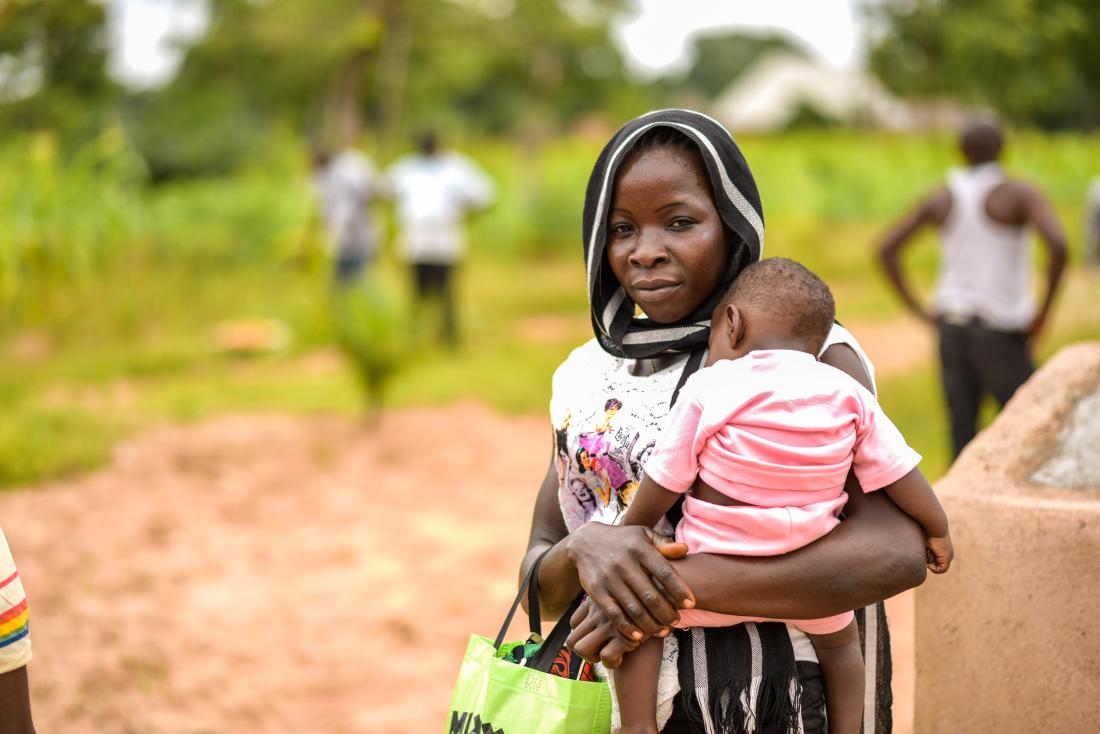Evaluating The Child Development Grant Program (CGDP) in Nigeria
- Children under five
- Mothers and pregnant women
- Food security
- Nutrition
- Cash transfers
- Information
- Unconditional cash transfers
Stunting and malnourishment can harm children’s cognitive development, leading to worse educational and labor market outcomes later in life. In Northern Nigeria, researchers are partnering with Action Against Hunger International (ACF) and Save the Children International (SC) to test the effect of providing mothers with unconditional cash transfers, coupled with varying levels of information and guidance on nutrition, to encourage parents to use funds for their children’s nutrition and food security.
Problema de política pública
Food insecurity and inadequate nutrition often cause children growing up in poverty to suffer from stunting or remain underweight. Stunting and malnourishment can harm children’s cognitive development, leading to worse educational and labor market outcomes later in life. One potential policy response is to provide money that enables households to provide for their young child’s nutrition. Existing research shows that conditional cash transfers, which set requirements that households must meet to receive funds, can effectively incentivize households to invest in their children's health and wellbeing. Additional research provides evidence that transferring cash to households without setting conditions also improves health and education outcomes. Combining transfers with information and guidance on nutrition might encourage parents to devote the funds to their children’s diets. Can an unconditional cash transfer to mothers, coupled with varying levels of information, improve nutrition and food security for young children?
Contexto de la evaluación
In Northern Nigeria, including the states of Jigawa and Zamfara, more than half (53 and 54 percent respectively) of children under five were stunted as of 2008. Moreover, UNICEF estimates that an estimated 370,000 children suffering from severe acute malnutrition will require lifesaving treatment in 2016.
In this evaluation, researchers partnered with two organizations working on nutrition and child development in Nigeria, Save the Children (SC) and Action Against Hunger (ACF). SC has worked in Nigeria since 2001, focusing on health, hunger and nutrition, education, and child rights and protection. The organization endeavors to ensure that children receive necessary care and resources in order to reach their full potential. ACF started working in Nigeria in 2010. The organization evaluates communities’ nutritional needs, treats and aims to prevent malnutrition, and builds the capacity of health systems to address malnutrition. In 2014, ACF treated more than 2.7 million people in Nigeria for malnutrition and illnesses.

Detalles de la intervención
In partnership with Action Against Hunger International (ACF) and Save the Children International (SC), researchers are evaluating the impact of the Child Development Grants Programme (CGDP) on food security and nutrition. Researchers will randomly assign mothers in 210 villages in two states of Nigeria to one of two treatment groups or a comparison group.
In 140 treatment villages, mothers and expecting mothers will receive monthly unconditional cash transfers of approximately NGN 3500 (US$11.30) from the time their pregnancy is confirmed until their child reaches two years of age. Mothers will additionally receive nutritional information and advice. In half of these treatment villages, mothers will receive basic information by text message whereas in the other half mothers will have access more detailed information through discussion and one-on-one sessions.
The remaining 70 villages will serve as the comparison group and will not receive either form of the program for the duration of the evaluation.
Researchers will measure the impact of the cash transfers and information on stunting and wasting, food security and dietary diversity, frequency of households selling assets for food, and men and women’s knowledge about nutrition.
Resultados y lecciones de la política pública
Study ongoing; results forthcoming.

